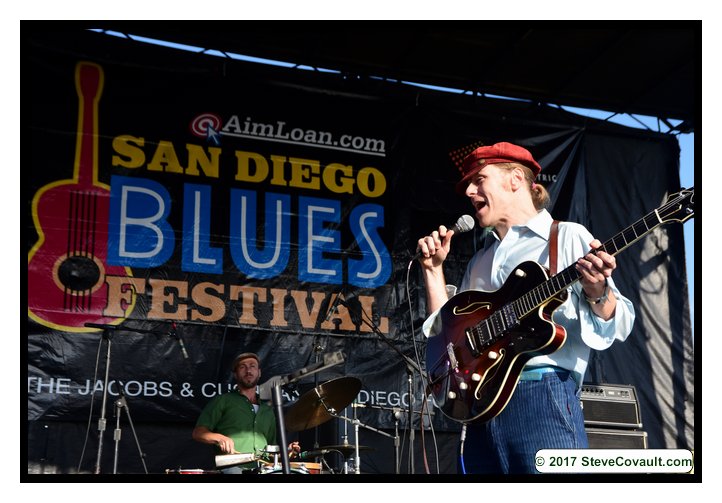Few bands in San Diego inspire the kind of rabid devotion that the Silent Comedy enjoy.
From their Prohibition-era wardrobes and Old West mustaches to lead singer/bassist J. John's manic ramblings, the band has struck upon a winning combination of musical chops and good-natured theatricality that has earned them their passionate following. Celebrating their return to San Diego at Bar Pink after a brief but hectic West Coast tour, the Silent Comedy were greeted by a characteristically packed house, and from the raucous opening song "Poison" onward, the band had the crowd exactly where it wanted them.
The group followed up with the excellent "'49" -- from their 2008 self-titled EP -- a carnival-esque ditty that featured a tremolo-picked mandolin and Man Man-inspired falsetto chanting. That the crowd sang along to every word of these previously released songs was unsurprising, but they seemed no less knowledgeable of "The Well" and "The Prince," which are set for inclusion on the band's as-yet-untitled sophomore album, due in March. Propelled by buoyant keyboard work from J. Benjamin, "The Well" was a rootsy, delirious church song that ended in a rousing call-and-response complete with "amens" and "hallelujahs."
The new material was enjoyable, but the highlight of the evening was unquestionably the performance of "Gasoline," a crowd favorite and the band's best song to date. From its hushed, finger-picked intro to the explosive, cathartic finale made all the more heart-wrenching by violinist I. Forbes' passionate playing, the song remains the finest example of the band's capacity for greatness.

The Silent Comedy were joined onstage by members of opening act/tour mates Mississippi Man for the premiere performance of "Bartholomew." The song was the only one written by guitarist T. Brian, and the difference showed. The song was a bit of an oddity, its distorted guitar riffs better suited to arena metal than the band's usual whiskey-soaked folk, but it maintained an infectious energy that made up for any accidental cheesiness.
The band fared better on old standbys like the Radiohead-evoking, J. Benjamin-led "All Saints Day," originally included on the band's debut album Sunset Stables but retooled into a darker, heavier version for the upcoming album. J. John introduced "Moonshine" with his oft-repeated overview of Prohibition in America, and the crowd went predictably wild. Just as they've ended virtually every show for the past couple years, the band finished their set with "Road Song," a frenzied medley of classics like "This Train Is Bound for Glory" and "When the Saints Go Marching In." Thanks to support from Mississippi Man, the band's numbers swelled to 10 for the finale, with J. John, in typical fashion, ending the song on the floor in a sweat-soaked heap.
SoundDiego
Music. Community. Culture.
The reliance on repetition is both the band's greatest weakness and its secret strength. Each Silent Comedy performance hits upon the same plot points, with the set list and monologues mostly indistinguishable from those of a month or a year ago. But it is that repetition that the band's fans seem to latch onto, reveling in their knowledge of what comes next.
The results can be alienating to the casual fan and tantalizing to the devotee, but the group brings so much energy to each and every note that any lack of originality feels beside the point. You don't go to a Silent Comedy show to see them reinvent the wheel; you go to see them blow the roof off the place.
Chris Maroulakos is a writer and editor for the San Diego music blog Owl and Bear.




